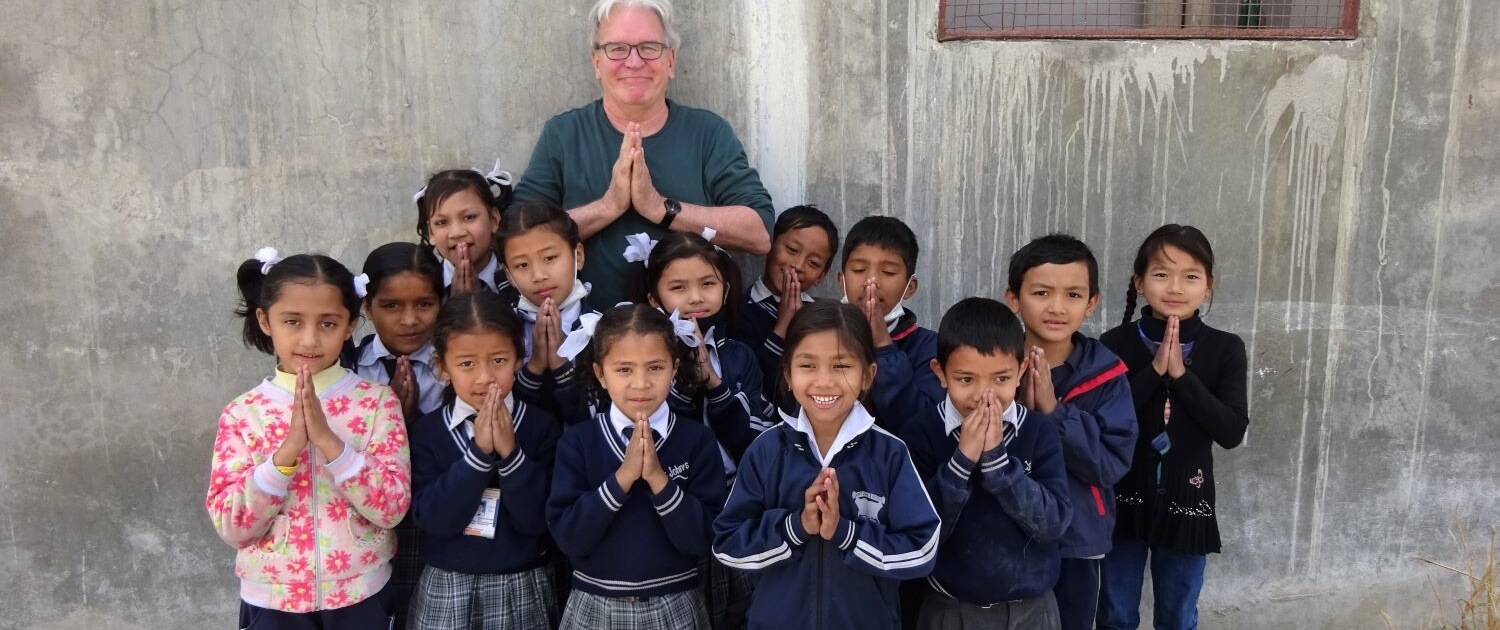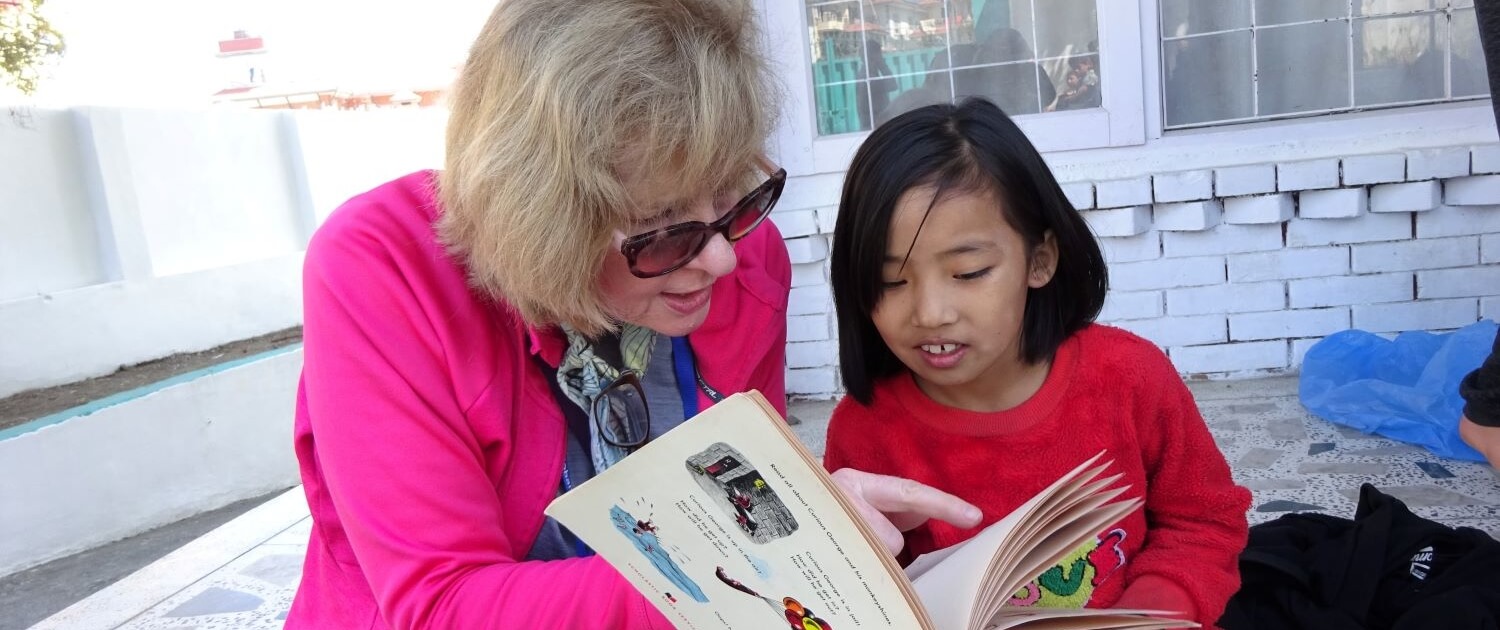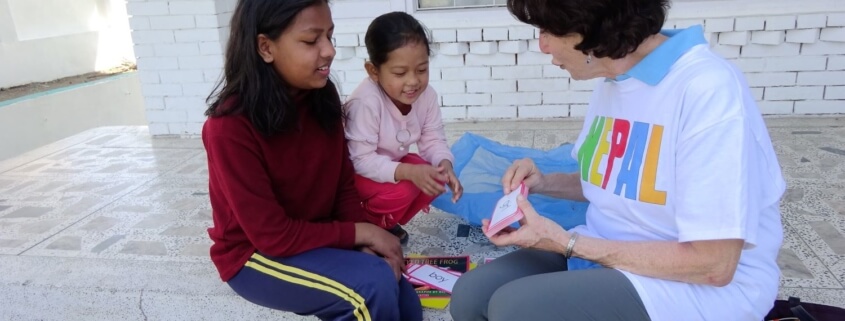Building Local Capacity in Nepal
A measure of success for Global Volunteers is supporting local efforts so much that volunteers either are no longer needed, or are assigned to ever-expanding community projects. By avoiding creating dependency, we work so that our partners are self-sufficient and local projects are sustainable. An essential step towards achieving this goal is building local capacity. This series begins with Nepal Country Manager Stephen Raja’s perspective on building local capacity in Nepal.
What are the main projects our community partners work on for the well-being of their communities?
The main projects are teaching Conversational English to students and women at Soroptomist and Astha Women’s School. Soroptomist Kathmandu is a non-profit organization that works towards women’s economic and social development. They have projects to generate awareness about women-related issues like gender discrimination, violence against women. Issues of environmental degradation and impact of climate change are also in the field of interest of the organization. They also work for the welfare of homeless and displaced women. Similarly, Astha Women’s School is a private, non-profit institution that provides approximately 400 women ages 14 to 62 with education towards a High School diploma. Global Volunteers provides free Conversational English classes to the women whom Soroptomist Kathmandu supports as well as to Astha’s students. Global Volunteers’ support greatly enhances the mission of both institutions with the goal of enabling women to work toward their full educational and earning potential.

What is the importance of those projects in the long run for the lives of community members?
Natural, economic and social factors play against the lives of the Nepalese. In a country prone to natural disasters, where the GDP per capita is 65 times less than in the U.S., and where your place in society defines your opportunities in life, education is an invaluable tool for local people. Part of the legacy of the caste system in Nepal is prejudice, institutionalized inequalities, and lack of opportunities for oppressed ethnic groups. Many of them are prevented even from walking through the neighborhoods of higher caste members to go to school. Local people are working to overcome these barriers and provide low-income families and marginalized women with the education and skills they need to have more opportunities. An essential element of this effort is English education. “Good English skills help all students get good jobs in the future,” Stephen emphasizes. Many students aspire to go abroad for jobs, and for this English is a must. Good jobs will help support their families financially and eventually help them come out of poverty.”
How do volunteers ultimately support students’ long-term success?
Global Volunteers’ contributions are immeasurable as the students get to learn English directly from native English speakers. In many case, they would never have the opportunity to hear or learn the language this way, and so their contribution is unique and greatly appreciated. Volunteers enhance the English speaking skills of the students which the local teachers can’t give. Volunteers use teaching tactics beyond what local teachers usually teach in Nepal, so the children are more engaged. This process involves games, songs, experiments, new ideas, etc.
“Never doubt that a small group of thoughtful, committed citizens can change the world; indeed, it’s the only thing that ever does.”
Margaret Mead
How do the volunteers contribute in particularly beneficial ways to help expand capacity?
To have access to native English teachers is a luxury only for the most privileged Nepalese, and low income families and marginalized women would never have this benefit. “Many of the teachers at the local schools don’t have a good command over English. so they learn along with the students when volunteers are in the classroom,” Stephen says. In addition, the ripple effect from volunteers’ work at schools and orphanages catalyzes additional local efforts. It’s well-known that when others pay attention to and support development efforts, the multiplier effect takes over. Initiative begets further initiative. Energy builds on energy. Good efforts lead to other good efforts. This is what is meant by Global Volunteers being a catalyst for development. They are not our projects, be our desire to work together with local people on their identified projects often provides the spark to start of maintain the effort. “By seeing Global Volunteers help, the children have started to help each other,” notes Namaraj Shahi of Global Volunteers partner Papa’s House. Volunteers not only helped them outwardly and visibly with projects of their own choosing, but they motivate them inwardly too, as their spirits are risen by seeing volunteers’ acts of love.” In turn, that motivation turns outward to the wider community, Namaraj says, and can eventually transform all it touches.
That, I believe, is the meaning behind Margaret Mead’s quote: “Never doubt that a small group of thoughtful, committed citizens can change the world; indeed, it’s the only thing that ever does.”

How do these small interventions support the sustainability/self-sufficiency of community partners?
One of the most difficult challenges for Nepal is providing quality education to all the children in the country. Most of the schools lack proper classrooms settings, books and uniforms, playgrounds and qualified teachers. That’s why many Nepali schools requested Global Volunteers’ help with education – to help to provide a better quality of education to their students. Our community partners appreciate the enormous value our volunteers bring to their students and teachers, and look forward to all the support and encouragement we can provide them so that they can give their best to the students. Bina Deuja, Director and Teacher at Astha Women’s School explains, “Our students want to learn. They want a better life for themselves and their families. Global Volunteers helps us motivate and encourage women and children and brings us resources we couldn’t otherwise have.” An educated, prepared youth and young adult population stabilizes and lifts up the entire community. Our community partners know that Global Volunteers’ contribution to quality education in the long run will help children and women reach their full potential, and in turn support the community’s sustainability and self-sufficiency.
Another post on this topic:




Leave a Reply
Want to join the discussion?Feel free to contribute!